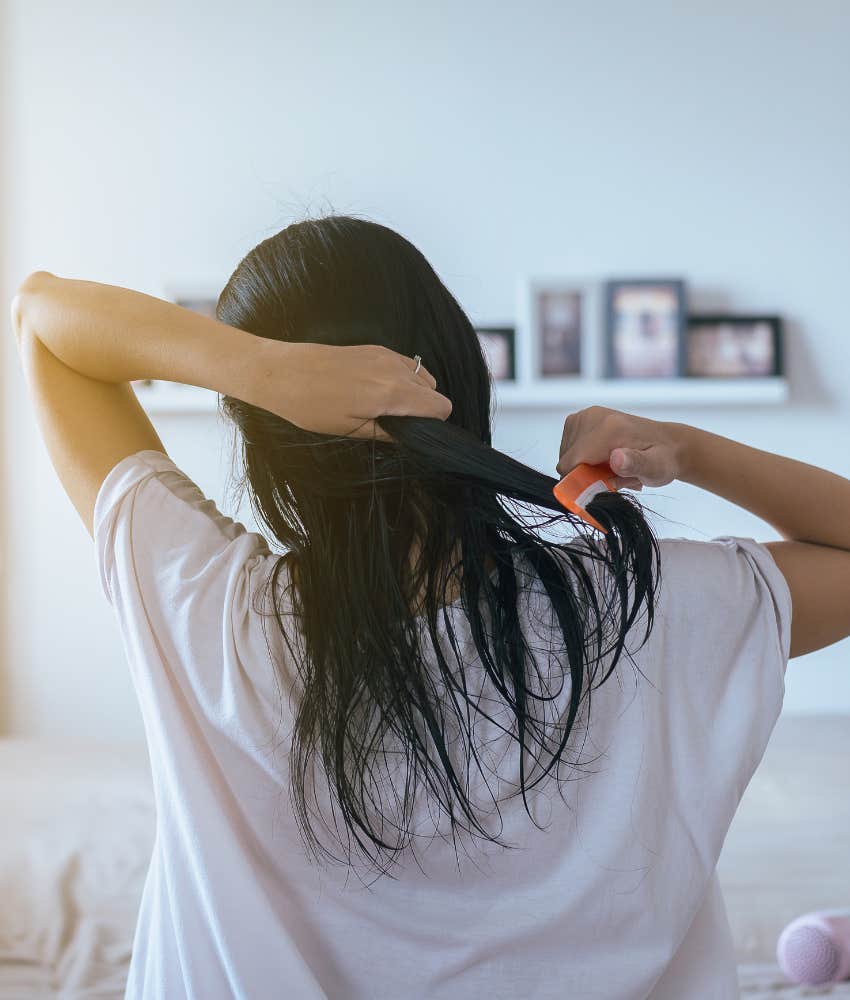4 Reasons People Should Shower Far Less Often, According To Harvard Medical School
Ditch the daily shower to improve your health.
 Badahos | Canva Pro
Badahos | Canva Pro Of all the lifestyle habits a person can have, showering is one that seems fairly straightforward. Whether you shower in the morning to jumpstart your day or shower at night to unwind, most people accept that showering once a day is the way to go.
Yet doctors have a different stance on the everyday shower, as many in the medical community believe it can be bad for your health.
Here are 4 reasons people should reconsider how often they shower, according to Harvard Medical School:
1. Showering too often can cause dry skin
Daily showers are a big part of American culture: Around two-thirds of Americans report taking a shower every day. Guidance from Harvard Medical School maintains this hygiene practice can be bad for your body.
Taking too many showers can lead to dry, itchy, damaged skin. This is especially true if you take showers in very hot water.
Healthy skin has a layer of oil that helps protect us from bacteria and allergens. Scrubbing with a washcloth on the regular can cause skin to get dry and even crack. This can allow the aforementioned bacteria and allergens to breach your skin barrier, leading to skin infections and allergic reactions.
2. Too many showers can damage your hair
In the same way that washing your body too often can cause dry skin, shampooing your hair too often can cause a dry scalp.
Dry scalp can lead to dandruff, which is itchy and uncomfortable.
 GBALLGIGGSPHOTO | Shutterstock
GBALLGIGGSPHOTO | Shutterstock
In addition to causing overall dryness, specific ingredients in shampoo can be damaging, too. Hair products like shampoo and conditioners often have additives, like perfumes and oils. These can further harm your hair and scalp by causing allergic reactions.
3. Certain soaps aren’t actually good for you
Healthy skin has a balance of good bacteria and other microorganisms, which soaping and scrubbing can remove.
Using antibacterial soap can be especially harmful, as it kills off all that good bacteria, which upsets the balance of your skin and can even lead to the emergence of other bacterias that are more resistant to antibiotics.
4. Frequent showers can affect your immune system.
Our immune systems need stimulation from dirt and normal microorganisms to remain strong. These environmental exposures allow our immune systems to form antibodies that protect us and our immune memory.
Showering too often can throw off what our immune system naturally needs to do to keep us healthy and strong.
Showering two to three times a week is a good number to aim for, yet even doctors note that there are extenuating circumstances. If you’re especially sweaty or dirty, or it’s the middle of summer, showering more often makes sense.
In order to best protect your skin and hair, dermatologist Dr. Toral Vaidya suggests a short and sweet shower routine.
If you can’t break away from your everyday shower routine, she recommends using warm water and limiting your time in the shower to ten minutes a day.
She also abides by the following order when it comes to getting clean: Using shampoo first, then conditioner, then body wash, and finishing up with face wash.
For many of us, showering isn’t only a way to get clean. It’s a form of self-care, a dedicated routine that allows us to reset toward a sense of calmness or feeling refreshed.
Changing your shower patterns might take some adjustment, but it can be beneficial for your body to try showering less often.
Alexandra Blogier is a writer on YourTango's news and entertainment team. She covers social issues, pop culture, and all things to do with the entertainment industry.

